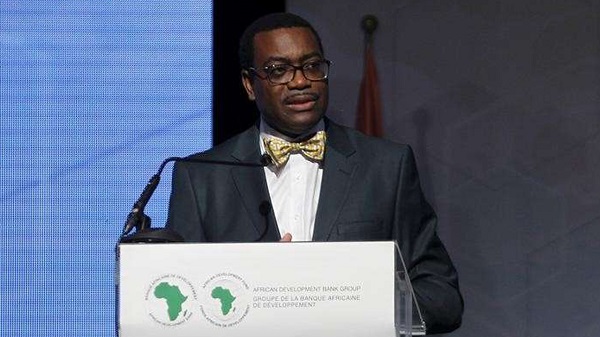- Holds talks with Pakistan’s prime minister on debt relief
President Muhammadu Buhari Thursday welcomed the exoneration of the President of the African Development Bank (AfDB), Dr. Akinwumi Adesina, by the bank’s board, from allegations of impropriety and fraud levelled against him by some officials of the continental bank.
The president also held talks with the Prime Minister of the Islamic Republic of Pakistan, Imran Ahmed Khan, on the campaign for debt relief for Non-Aligned Movement (NAM) members.
The president, in a statement by his spokesman, Mr. Femi Adesina, hailed the outcome of the investigation into the allegations of wrongdoing against the AfDB president, saying that Adesina had not only served Africa well but had made his nation, Nigeria, proud.
Adesina had been under investigation since April by the Office of Integrity and Anti-Corruption (PIAC) as well as the Ethics Committee and Audit and Finance Committee of the continental bank following allegations by “concerned staff members” of the bank who accused him of “various cases of alleged breaches of the code of conduct” of the bank in some appointments and several contracts “approved by Adesina’s team supposedly in violation of the AfDB’s statutory and ethical rules.”
According to reports, 16 of the allegations were documented in English while several others were made in French, including what the employees described as “unusual managerial style,” “dominance of impunity and nepotism,” “chaotic management of human resources” and the “financial waste and lack of budgetary discipline.”
However, a report signed by the Chairman of the Bureau of the Board of Governors of AfDB, Niale Kaba, on Tuesday, absolved Adesina of all the allegations “which were thoroughly investigated by the Ethics Committee of the Board of Directors.”
Buhari, in his statement, quoted Kaba as saying that “on the basis of the results contained in the report of the committee, I am of the view that we should adopt its conclusions by declaring that the president is totally exonerated of all the allegations made against him.”
The president lauded the clearance of Adesina, who is seeking a second term of five years in office, and wished him “greater successes in the position of responsibility he occupies.”
Talks with Pakistan’s Prime Minister on Debt Relief
The president also yesterday discussed with the Pakistani prime minister on the quest of NAM members for debt relief.
Adesina, in another statement yesterday in Abuja, said the talks between the two leaders centred around the Global Initiative on Debt Relief canvassed by leaders of the NAM Contact Group.
The Non-Aligned Movement Contact Group is an alliance of 120 countries.
The statement added that the discussion between Buhari and the Pakistani leader occurred yesterday afternoon through a phone conversation.
“During an online summit held on Monday, leaders of the 120-nation organisation, the largest after the United Nations had agreed that a debt relief campaign be launched for developing countries to deal with the COVID-19 pandemic and unprecedented health and socio-economic challenges facing most of them,” it stated.
The leaders also believed that the debt relief would also help to address the unprecedented health and socio-economic challenges facing most of the member countries of the Non-Aligned Movement Contact Group.
During the virtual summit of heads of state and government of NAM, Buhari had said national, regional and global strategies would be required to tackle the pandemic.
He urged international financial institutions to assist member states in cushioning the negative impact of the pandemic in the spirit of solidarity.
“Within the spirit of south-south cooperation, we must also assist one another, particularly the less developed and less endowed member states with technical, medical and financial assistance.
“It is by so doing that we can rightly claim to uphold the Bandung Principles of equality, mutual interests and cooperation,” he had said.
Buhari had also suggested that international financial institutions offer concessional loans, technical support, lowering of tariff on medical equipment and consumables, sharing of expertise in case management, adopting open trade policies, as well as outright debt cancellation to help developing countries.



